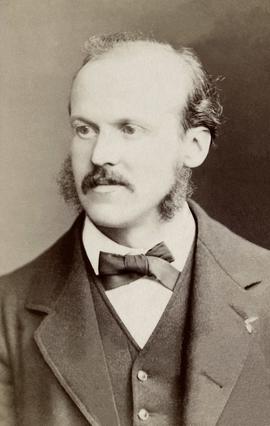Alphonse Milne-Edwards was a French mammalogist, ornithologist and carcinologist. He was the son of Henri Milne-Edwards. Milne-Edwards obtained a medical degree in 1859 and became assistant to his father at the Jardin des Plantes in 1876. He became the director of the Muséum National d'Histoire Naturelle in 1891, devoting himself especially to fossil birds and deep-sea exploration. In 1881 he undertook a survey of the Gulf of Gascony with Léopold de Folin and worked aboard the Travailleur and the Talisman on trips to the Canary Islands, the Cape Verde Islands, and the Azores. For this, he received a gold medal of the Royal Geographical Society
Biologist
Robert McLachlan was an English entomologist specialising in the study of lacewings and caddisflies. McLachlan was the first editor of the review Entomologist's Monthly Magazine. He became a member of the Entomological Society of London in 1858, and served variously as secretary, treasurer and president. He was a member of the Linnean Society of London from 1862, and was elected to the Royal Society in 1877. He was also a member of the Zoological Society of London, the Royal Horticultural Society, a member of the council of the Ray Society and a member of various other British and foreign learned societies
John Edmund Sharrock Moore was an English biologist, best known for being co-publisher of the term meiosis and leading two expeditions to Tanganyika.
In 1904 he married Heloise Salvin, second daughter of the naturalist Osbert Salvin. Moore frequently used the name Salvin-Moore after his marriage. They had one child Osbert John Salvin Moore.
Although he is often cited as John Edward Sharrock Moore, he used several versions of his name.
In 1900 he was appointed as a Demonstrator in Zoology at the Royal College of Science. He became an acting Professor of Zoology there from 1903 to 1905. In 1906 he was appointed the Professor of Experimental and Pathological Cytology and Director of the Cancer Research Laboratories at the University of Liverpool, retiring in 1908.
He was the first to be awarded the Huxley Gold Medal for Research, in 1900 by Royal College of Science. He was a Fellow of the Royal Geographic Society from 1901, the Linnean Society and the Zoological Society of London
Member of Parliament for Mid Surrey
